July 2017 Culture and Society
Read the articles selected in July 2017
Maryam Mirzakhani-Mathématicienne iranienne
by Nathaniel Herzberg
Source: Le Monde, 18 July
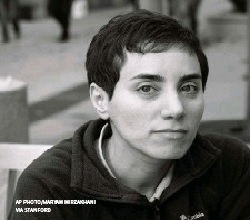
She was the first woman to win the Fields Medal, equivalent to the Nobel Prize in maths. Keen on literature, she started studying mathematics because attracted by enigma. She said she had no rules, but her own method, and was very patient.
Le crépuscule des dieux selon Bill Viola
by Valérie Duponchelle
Source: Le Figaro, 22 July
Bill Viola’s fluid, metaphysical world expands and materializes in the infinite space of Museum Guggenheim Bilbao. This extreme architecture by Frank Gehry, where are reviving 27 works of the great video artist, is a challenge to the conception of the art gallery as a box.
Moines et éditeurs, urbi et orbi.
by Astrid de Larminat
Source: Le Figaro, 21 July
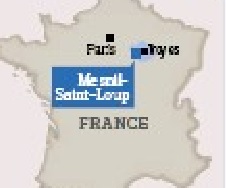
In France, a Benedictine monastery has founded a tiny publishing house, which brings out works of dissident souls. They don’t feel like descendants of medieval copyists, but they see literary activity as a free desire in dialogue with God, an engagement that ties peoples. Ora et labora.
The riches of Papa
by Ron Charles
Source: The Washington Post, 21 July

A new edition of Hemingway’s short stories, edited by his grandson Seán Hemingway, presents some stories with alternative endings written by the prolific author, showing for the first time to the great public his whole literary creativity.
Jane Austen , 200 years on
Source: The Economist, 13 July
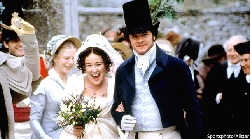
In the bicentenary of her death, Jane Austen is celebrated for her quintessentially British, extremely skilled writing able to depict the daily, English life of her time, that reflects through the pink topic of marriage the universal problem of women’ condition.
Stricter rules needed to tackle gender stereotypes in advertising, watchdog says
by May Bulman
Source: The Independent, 18 July

The Advertising Standards Authority in the UK has reported the need in rules that go beyond banning objectification and inappropriate sexualization of women in the messages, to prevent also the representations of gender roles that can play a role in the disparities.
Autobiographical storytelling is bridging divides in Beirut
Source: The Economist, 28 June
Every month in Beirut people of all backgrounds gather to hear and tell stories. Rediscovering a typical Middle Eastern tradition they share true, personal experiences that tell tolerance and break taboos in a country crossed by religious and political divides.
Just for laughs
Source: The Independent, 19 July
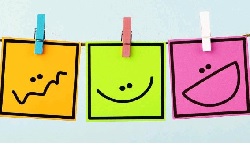
Textual laughter interest linguists. Digital chuckling conveys so many nuances of meaning that has little to do with humor. Practically, with only a ha! you can ask your interlocutor whether he has nothing better to do than texting you.
La médecine sous l’oeil du philosophe
by Catherine Mary
Source: Le Monde, 12 July
The Introduction à la philosophie des sciences médicales by Maël Lemoine examines the methods of the contemporary medicine discussing the borders between the healthy and the pathological and questioning the evidence-based medical sciences devoid of a common theoretical fundament.
Paolo Villaggio
by Jean-François Rauger
Source: Le Monde, 11 July
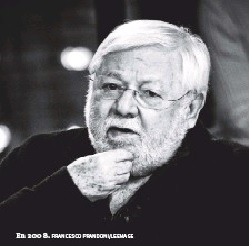
Paolo Villaggio was a not acknowledged great actor. His characters, creatures of his own writing, born initially for a television audience, characterize the Italian comedy of a kind and of a generation which used the comical in bad taste to express a childish, cruel and melancholy whiteness.
Bauhaus für das 21. Jahrhundert
by Jasmnin Jouhar
Source: http://www.faz.net/, 12 July
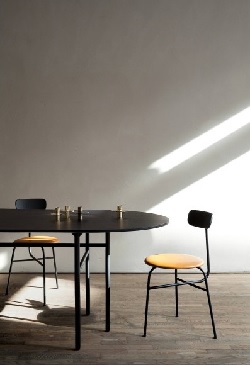
What inspires young designers that are rediscovering the Bauhaus style is the spirit and the method of the design school which dealt with the relation between aesthetics, industry and technology and produced the great utopia of art accessible to everyone, and part of the daily life, to become a critical instrument for the mass.
Read more:
Historic Christian building found off Scottish coast
by David Keys
Source: The Independent, 11 July

Using radiocarbon techniques, archeologists have shown that a humble wattle and daub hut, discovered on the Island of Iona in the 1950s is a building of outstanding importance for the European culture and the Western Christianity.
David Hockney: “Je suis un peintre hereux”
by Philippe Dagen
Source: Le Monde, 23 June
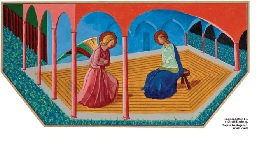
On the occasion of his retrospective by the Centre Pompidou, David Hockney questions the occidental perspective that assumed a fixed spectator’s look, and celebrates the art of painting against the mechanical and digital instruments of representation for its capacity to perceive the body and the matter.
Die Philosophie der Chemie
by Sibylle Anderl
Source: Frankfurter Allgemeine, 5 July

The question about the composition of matter was born with the philosophy. Aristoteles was the first who held the divisibility of atoms and his thought had influenced even the modern chemistry. Today, the question of the reality of microphysics descriptions is still an open philosophical problem.
Florent Coste: “Repolitiser notre rapport à la création littéraire”
by Jean-Louis Jeannelle
Source: Le Monde, 30 June
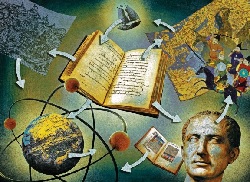
A literary medievalist theoretician invites to rediscover literature in its relations with the social ecosystem which is always part of the creative process. Literature has still sense if it becomes a not exclusive, ordinary experience, that through the everyday tongue changes our existence.
Tarkovski, le sombre éclat d’un réfractaire
by Marie Noël Tranchant
Source: Le Figaro, 1 July
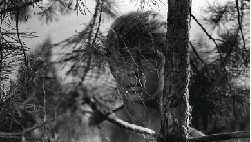
In Paris, two retrospectives are dedicated to Andreï Tarkovski, the film maker in search of the spiritual mystery of the world. Refractory to every form of materialism, the regime allowed him to produce films that the Western wouldn’t have gambled on as experimental movies, while censuring them.
How the Opera di Roma turned things around
Source: The Economist, 22 June
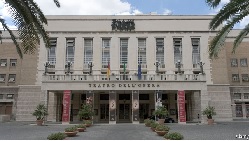
In Italy, many opera houses are in financial difficulties. The Opera di Roma has successfully launched a programme for youth that reaches public squares and lures audience in the theatres, while helping young artists in their careers. Italy has the responsibility to keep alive this genre born popular.
China releases Nobel Peace Prize winner from prison on health grounds
by Simon Denyer
Source: The Independent, 27 June
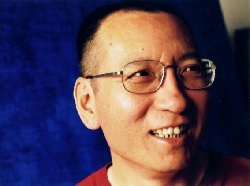
Liu Xiaobo, one of the former students in Tiananmen Square demonstrations, Nobel Peace Prize for his long and nonviolent struggle for fundamental human rights in China, has been released from prison where he served a sentence due to his political activity on health grounds.
Info
- Pubblicato il : 19/12/2017 Modificato il : 04/04/2019
Allegati
- The riches of Hemingway pdf
- Moines et editeurs pdf
- Le crepuscule des dieux selon Bill Viola pdf
- Maryam Mirzakhani pdf
- Just for laughs pdf
- Autobiographical storytelling pdf
- Stricter rules for advertising pdf
- Jane Austen pdf
- Historical Christian found pdf
- Paolo Villaggio pdf
- Philosophie de la medecine pdf
- China releases Nobel Peace Prize winner pdf
- The Opera di Roma pdf
- Tarkovski pdf
- Florence Coste pdf
- Die Philosophie der Chemie pdf
- Un peintre hereux pdf

